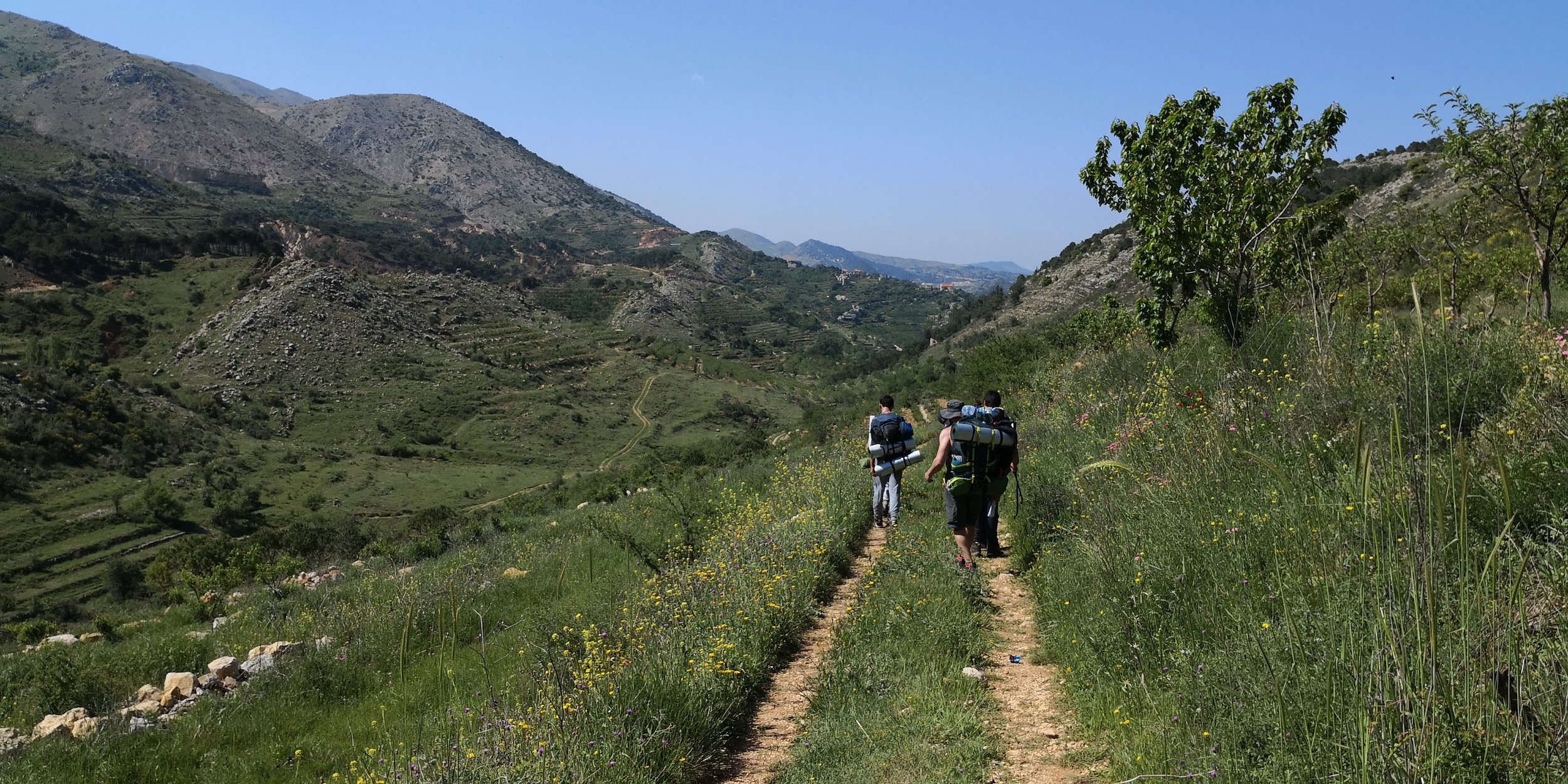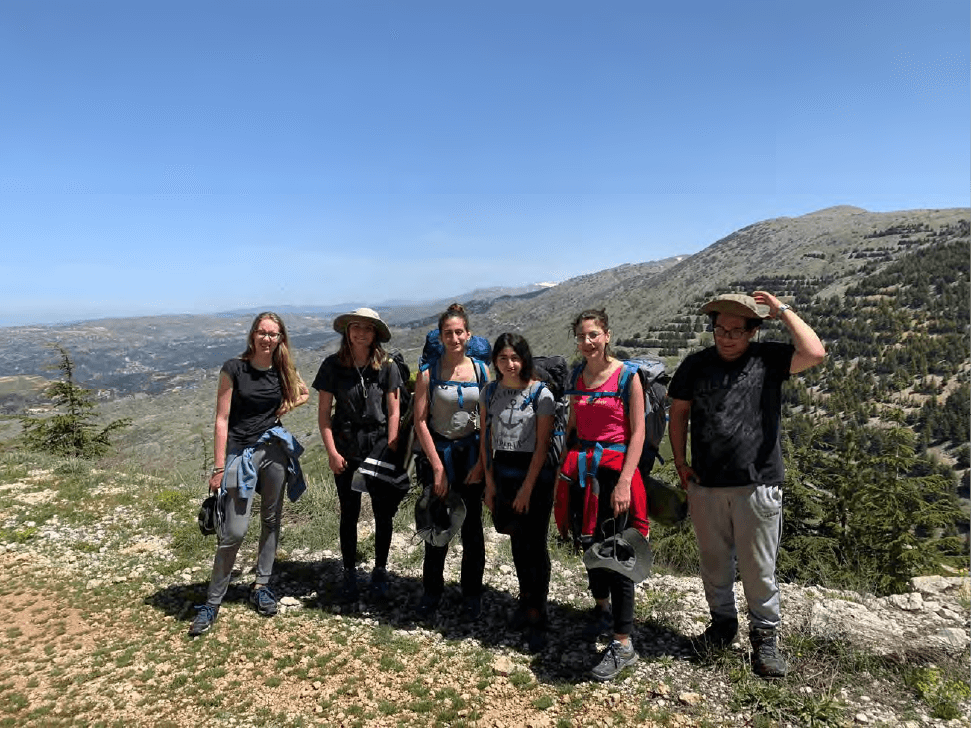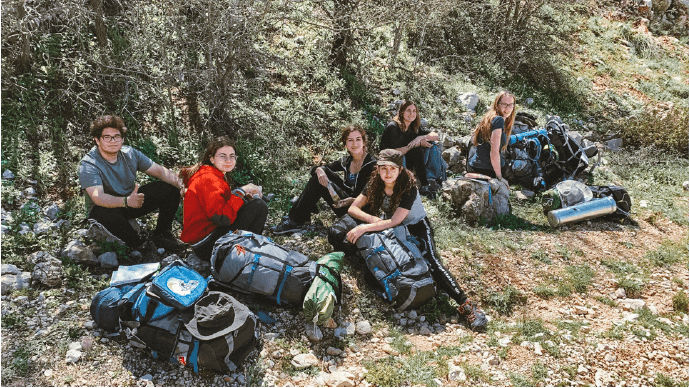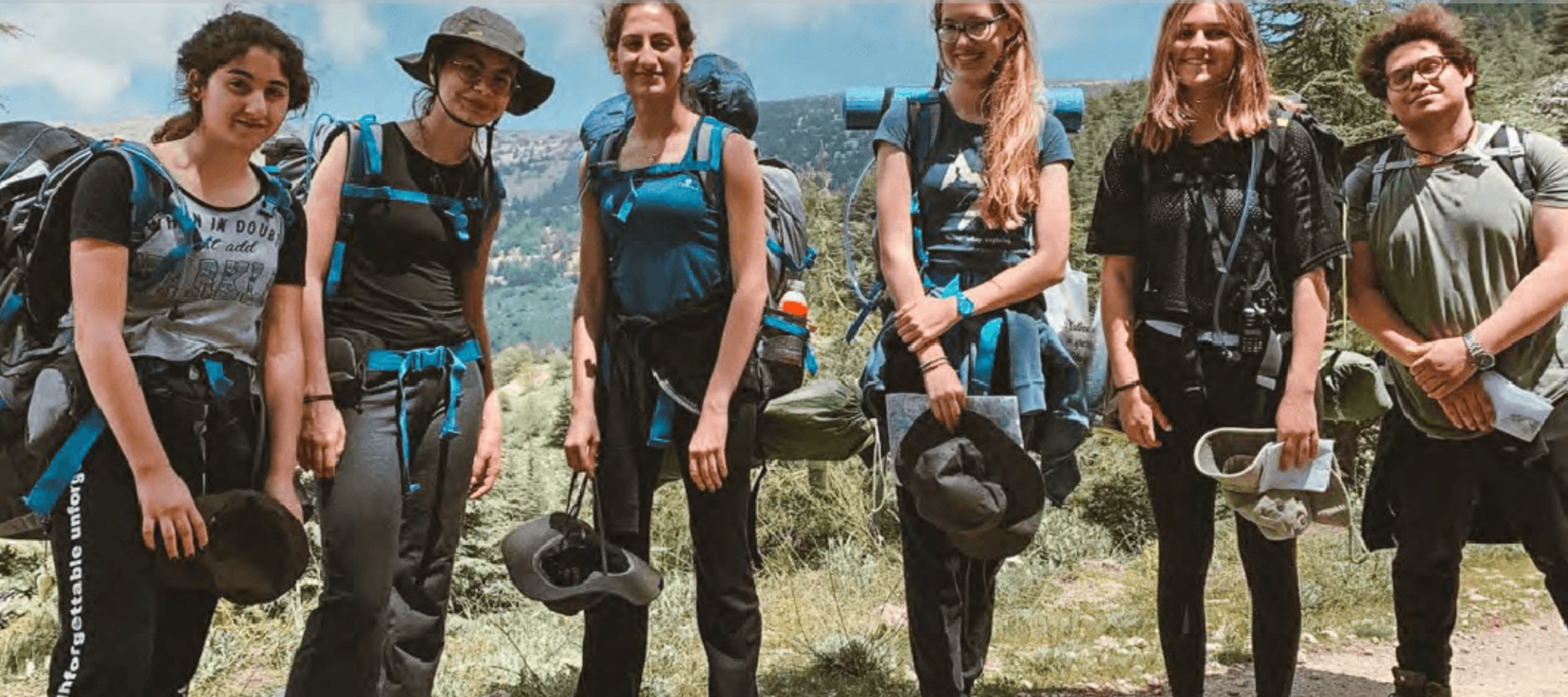
The Duke
of Edinburgh’s International
Awards in Lebanon, at
Eastwood International
School in Beirut
Participating in the Award instills focus, drive, stamina, and accomplishment.
It teaches young people that they can make their dreams come true, if they work towards it.
About the program.
-
At Eastwood International School in Lebanon, students are provided the unique opportunity to participate in The Duke of Edinburgh’s International Awards program. We are currently the only organization in the entire country licensed to conduct this popular, world-renowned program.
The Duke of Edinburgh’s International Awards began in 1956s in England. It was spearheaded by - you guessed it - Prince Philip himself (his royal title is The Duke of Edinburgh, by the way). Two other notable men were also involved: Kurt Hahn and Lord Hunt. Together, these men had experience in physical and outdoor achievements, to push personal boundaries. It did a lot for them, so they wanted to encourage young boys to do the same. Two years later, girls were invited to join in on the fun.
Thereafter, the program launched internationally. Over the last half century, the movement spread to over 240 countries around the world. For coordinators outside England, it now operates under the banner of The Duke of Edinburgh’s International Award Foundation.
Despite its rapid adaptation around the world, the program did not appear in Lebanon until 2017. Eastwood International School in Beirut was the first in the country to bring this program to local students.
We’d encourage all our students to participate, if they can. -
The Duke of Edinburgh’s International Award is a systematized program for completing personal development milestones, in a documented way, with oversight. It teaches youth to pick an achievable goal, work towards it, stick to it, and see it through until the end. That act in itself says a lot; it requires a strong mindset to not give up, and to do what you say you’re going to do - even to yourself. Each Award level includes learning a new skill, regular physical activity, and volunteer service. At the end of each goal-setting routine, which gets harder and harder at each level, students are taken on an Adventurous Journey. This is a wilderness camping and hiking trip. The completion levels and requirements to achieve the Awards are listed here in more detail. Overall, the program aims at evoking a sense of confidence in a young person. That happens when one is able to challenge themselves, and to overcome that challenge. It doesn’t have to be a big challenge either. Small, simple goals are very much encouraged.
-
Though it is not a mandatory part of our curriculum, The Duke of Edinburgh’s International Award is an utmost, excellent and rare privilege for students at our Beirut private school. Under this scheme, they can receive international recognition for their personal development, based on interests they possess. We can’t say enough good things about it.
By ‘pushing’ themselves, participants can learn that they like something they never thought of doing before. That could turn into a new, joyous hobby, or even a career choice.
Some claim that having a Duke of Edinburgh’s International Award on your resume is an added value when seeking university placements or jobs. It certainly is a conversation-starter. It also shows that the applicant is a self-starter, has had dynamic experiences and has worked in a team setting outside of school already.
Participating in the Award instills focus, drive, stamina, and accomplishment. It teaches young people that they can make their dreams come true, if they work towards it. And that starts with the small, practical, time-consuming steps. It also demands the experience of trying, failing, and trying again. It means less time wasted on unproductive habits. We believe any well-rounded individual should learn this life lesson as early as possible, in order to be successful (at anything).
The program also has a strong physical fitness component to it. In addition to learning how to manage their time with school work and social lives, high school students keep active in a conscious, calculated way. This promotes living a healthy lifestyle no matter what, starting at an early age.
Finally, the leadership and teamwork skills obtained through the Adventurous Journeys are exceptional. The teens learn to manage on their own, in a group, during a camping and hiking trip (with adults nearby, but out of sight). -
Is The Duke of Edinburgh’s International Award
part of your school’s curriculum? Do all students have to do it?
No. This program is entirely elective, and must be completed outside school hours (per the requirements of the foundation).
In reality, we usually only get a handful of participants. Though we’d love for this number to grow, it is noteworthy to point out that completing the program shows strength of character and time management skills that not many possess, or desire to learn (so, it is worth applauding).
Still, apart from the camping trip, acceptable goals can be as small as learning how to cook, or taking martial arts classes; it’s far from impossible! We believe anyone can do it.





Overall, the program aims at evoking a sense of confidence in a young person.
That happens when one is able to challenge themselves, and to overcome that challenge.
It doesn’t have to be a big challenge either.
Small, simple goals are very much encouraged.
The
Awards
-
Level: Bronze Award
(minimum start age of 14)
SERVICE:
One hour a week*, spanning 13 weeks, working towards a community service such as working with youth, joining student council, working on the school year book, or other volunteer, time-based work.
SKILL:
One hour a week, spanning 13 weeks, developing a new skill such as learning how to cook, memorizing the alphabet of a new language, picking up a musical ability, coding a simple program and so on.
These are not fitness-based skills.
PHYSICAL RECREATION:
One hour a week, spanning 13 weeks, performing an athletic activity such as running, swimming, football, and so on.
EXTRA 13 WEEKS:
One extra hour a week devoted to any of the above categories.
*NOTE:
The “one hour a week” can be completed once a week, 2 consecutive hours per fortnight, or four consecutive hours every month.
ADVENTUROUS JOURNEY;
Two group wilderness trips, each spanning 2 days and 1 night (usually taken a 2 - 3 weeks apart, depending on weather).
The first is a “Practice Journey,” and the second is a “Qualifying Journey.”
Each trip requires route planning of at least 10 Km (with compass and map reading), first-aid skills, outdoor preparedness and a purposeful goal along the way.
Students set up camp and cook for themselves. Adult guides join, but are out of sight for most of the journey, while students camp on their own. At least 6 hours each day in the wilderness must be spent on pre-planned activities, formulated by the students themselves, to have some purpose.
For example, it can be environmental clean up, or data collection of biology in the park.
ATTENTION!
Important: we only take groups of 4 - 7 students on the Adventurous Journey each year. The selection is based on the participants who complete the most number of hours towards their goals in other categories. The number of trips taken will depend on how many students decide to dedicate themselves to the awards. -
Level: Silver Award
(minimum start age of 15)
The requirements for the Silver Award are the same as the above,
except they span longer time periods as follows:
SERVICE:
One hour a week, spanning 26 weeks.
SKILL:
One hour a week, spanning 26 weeks.
PHYSICAL RECREATION:
One hour a week, spanning 26 weeks.
EXTRA 26 WEEKS:
Only required if the participant did not achieve the Bronze Award. As a supplement, one extra hour a week is devoted to any of the above categories.
ADVENTUROUS JOURNEY;
3 days and 2 nights for a “Practice Journey,” followed by 3 days and 2 nights of a “Qualifying Journey.”
The purposeful effort portion lasts 7 hours per day. -
Level: Gold Award
(minimum start age of 16)
-
Again the requirements for the Gold Award are the same as the above, with more hours added. However, at this level, an extra category of achievement is added. See below for more info:
SERVICE:
One hour a week, spanning 52 weeks.
SKILL:
One hour a week, spanning 52 weeks.
PHYSICAL RECREATION:
One hour a week, spanning 52 weeks.
EXTRA 26 WEEKS:
Only required if the participant did not achieve the Silver Award. As a supplement, one extra hour a week is devoted to any of the above categories.
ADVENTUROUS JOURNEY;
4 days and 3 nights for a “Practice Journey,” followed by 4 days and 3 nights of a “Qualifying Journey.”
The purposeful effort portion lasts 8 hours per day.
GOLD PROJECT:
Minimum of 5 days and 4 nights spent in an unfamiliar setting, to learn or achieve something new, with people not met before.
For example, the participant may:
• Take a language immersion trip in another country
• Go to a musical or sports camp
• Participate in a youth government conference
• Assist an archeological dig
• Build an orphanage in an underdeveloped country
• Obtain a lifeguard certification in another city
And so on
The main requirements here are that the trip completed while ‘in residence’ somewhere is well-intended (i.e. not a vacation), and is other than the participant’s home or community. If necessary, the participant must complete applicable training or orientations required before going on the trip.
FAQs and practical notes about the Award program at Eastwood International School in Lebanon
Is there a cost for signing up to do the Awards?
While there is no direct cost for the merit of achieving the Award, officially, there can be costs involved in the participation of activities. Of course, this would be the case with any initiative someone takes to learn something new, or to go on a trip of any kind.
For example, if the goal is to learn a musical instrument, then a student may need to pay a teacher for this instruction. Or, they may need to buy the instrument, and maintain it.
There are costs associated with the Adventurous Journey portion of the Award program. Participants pay a fee of $200 USD to cover transportation costs, as well as entry to the protected area where the hike takes place. In addition, participants will need to have some camping gear, which they may need to purchase (if they don’t have them already). This includes hiking shoes, a hiking backpack, a sleeping bag, a water pouch and other camping tools and equipment.
Eastwood International School will provide tents, a small cooking stove and a gas bottle, to be shared by the students on the Adventurous Journey.
Is there an age restriction to participating in the Awards?
Anyone enrolled at our school in Lebanon, starting at age 14, is eligible to participate in the Award program. Typically, the Bronze program begins at age 14, Silver at age 15 and Gold at age 16. Though, these are only the minimum requirements, and each level can start at a later age.
Students should finish their goals within the allotted weeks per award level. However, it’s possible it can take them longer, which would then determine the age they can start the next level.
Students who join the program past the minimum age requirements can also complete extra hours towards their level completion, to be eligible for the Award. See above for more details.
We recommend students begin at age 14. This will make the program easier in later years, as the requirements get more demanding.
We should note that, technically, this Award is eligible for participants up to age 24. Though, we aim for our students to complete their sections in the year they start, and before they graduate.
How is the Award program supervised and tracked?
Everyone who signs up to participate in the Award program meets with a Leader and Assessor. Goals are outlined, confirmed and written down.
From there, progress is logged by the students in the Foundation website’s Online Record Book.
When hours are completed towards all sections, the Leader and Assessor will review the proof of completion, and sign off on it. This sign-off is needed before the application for the award is sent to England for final approval.
Can I just go on an Adventurous Journey, or do one part of the Award?
While the Adventurous Journeys can seem enticing, they not open to everyone. In fact, only students who have diligently worked on their other goals are taken on these trips.
This trip is not just a fun camping hike that we do at our school in Lebanon (though it is fun!). It is a symbolic component of the The Duke of Edinburgh’s International Awards program. It acts as the culmination of dedicated effort and planning. wich spans several weeks prior. The students who go on this trip have worked hard to earn it, and work hard to complete it.
Regarding the rest of the Award sections, we would encourage anyone to try new things, set goals and achieve them. This is exactly what the program hopes to inspire in young people around the world.
However, to be eligible for an official Duke of Edinburgh’s International Award, one has to complete all of its requirements, and provide proof that they have done so. Eastwood International School provides trained facilitators to act as Assessors and Leaders for those who wish to stay accountable to their goals, for the entirety of the program.
Is the Adventurous Journey safe? Is there adult supervision on this trip?
We have Award Leaders and Assessors who go on every Adventurous Journey with our students. They are adult employees of Eastwood International School in Lebanon, and act as known guides to the Award participants throughout the year (i.e. they are familiar faces to the students). They have been trained for the trip by The Duke of Edinburgh’s International Award Foundation. Parents do not go on this trip.
A big part of the Adventurous Journey is the learning and preparation work that the students do on their own, beforehand. The trip is designed to push the participants beyond their comfort zone, and to teach them responsibility. It is supposed to be hard. But, it is never meant to be unsafe. The kids stay in a group, and learn first aid and wilderness skills before they go, too.
The adults will be nearby, but out of sight, during the journey. At certain points in the day, they will meet with the group along the route to check in and give assessments. For more risky parts of the hike, the trained Leaders and Assessors are with the kids the entire time.
If I volunteer for the Award, does that count towards my service in the IBDP?
Yes! Hours spent on The Duke of Edinburgh’s International Award may count towards CAS hours in the IBDP, at Eastwood International School in Beirut.

Design+Tech
Program @EIS
Educational programs world-wide have been integrating computer programming in all levels of school curricula, but only a few schools offer a fully integrated Design and Technology program that not only teaches computer programming skills but also the entirety of the design cycle of a brand and product.

